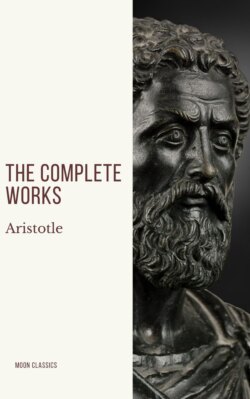Читать книгу Aristotle: The Complete Works - Aristotle - Страница 290
На сайте Литреса книга снята с продажи.
2
ОглавлениеThe soundness of this definition is evident both when we consider the accounts of motion that the others have given, and also from the difficulty of defining it otherwise.
One could not easily put motion and change in another genus-this is plain if we consider where some people put it; they identify motion with or ‘inequality’ or ‘not being’; but such things are not necessarily moved, whether they are ‘different’ or ‘unequal’ or ‘non-existent’; Nor is change either to or from these rather than to or from their opposites.
The reason why they put motion into these genera is that it is thought to be something indefinite, and the principles in the second column are indefinite because they are privative: none of them is either ‘this’ or ‘such’ or comes under any of the other modes of predication. The reason in turn why motion is thought to be indefinite is that it cannot be classed simply as a potentiality or as an actuality-a thing that is merely capable of having a certain size is not undergoing change, nor yet a thing that is actually of a certain size, and motion is thought to be a sort of actuality, but incomplete, the reason for this view being that the potential whose actuality it is is incomplete. This is why it is hard to grasp what motion is. It is necessary to class it with privation or with potentiality or with sheer actuality, yet none of these seems possible. There remains then the suggested mode of definition, namely that it is a sort of actuality, or actuality of the kind described, hard to grasp, but not incapable of existing.
The mover too is moved, as has been said-every mover, that is, which is capable of motion, and whose immobility is rest-when a thing is subject to motion its immobility is rest. For to act on the movable as such is just to move it. But this it does by contact, so that at the same time it is also acted on. Hence we can define motion as the fulfilment of the movable qua movable, the cause of the attribute being contact with what can move so that the mover is also acted on. The mover or agent will always be the vehicle of a form, either a ‘this’ or ‘such’, which, when it acts, will be the source and cause of the change, e.g. the full-formed man begets man from what is potentially man.
<
div id="section21" class="section" title="3">
